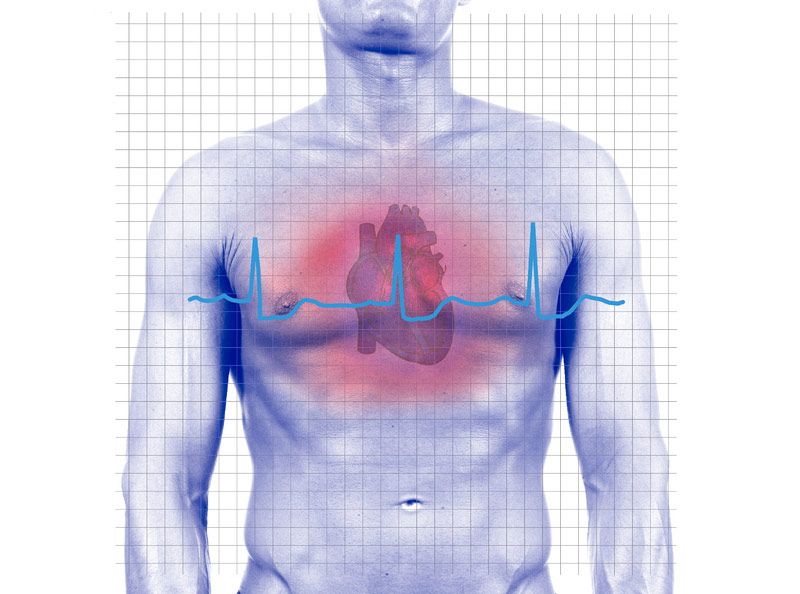Heart Disease Risk Higher for Short People

Short people have a greater risk of developing heart disease than tall people, researchers now suggest.
A review of evidence from 52 studies involving three million people found that short adults were nearly 1.5 times more likely to suffer a heart attack, develop cardiovascular or heart disease or die from it than were tall people. This appeared to be true for both men and women.
Unlike the Randy Newman song, "Short People," however, these new findings do not suggest that "short people got no reason to live."
"Height is only one factor that may contribute to heart disease risk, and whereas people have no control over their height, they can control their weight, lifestyle habits such as smoking, drinking and exercise and all of these together affect their heart disease risk," said researcher and clinician Tuula Paajanen at the University of Tampere in Finland. "In addition, because the average height of populations is constantly increasing, this may have beneficial effect of deaths and illness from cardiovascular disease."
Ending 50 years of debate?
For a little more than a half-century, more than 1,900 studies have provided conflicting evidence on whether shortness was associated with heart disease. The researchers hope that with their new review, "the association is recognized to be true and in future more effort is targeted to finding out the possible pathophysiological, environmental and genetic mechanisms behind the association, with eyes and minds open to different hypotheses," Paajanen said.
"There has been wide debate for over 50 years now," she told LiveScience. "Now we've got results."
Sign up for the Live Science daily newsletter now
Get the world’s most fascinating discoveries delivered straight to your inbox.
On average, the short people Paajanen and her colleagues analyzed were below 5 feet 3 inches (160.5 cm) high and tall people were over 5 feet 8 inches (173.9 cm). When men and women were considered separately, on average short men were below 5 foot 5 inches (165.4 cm) and tall men were over 5 foot 9 inches (177.5 cm), while short women were below 5 feet (153 cm) and tall women over 5 foot 5 inches (166.4 cm).
Looking at men and women separately, short men were 37 percent more likely to die from any cause compared with tall men, while short women were 55 percent more likely to die from any cause compared with their taller counterparts. Paajanen and her colleagues detailed their findings online June 9 in the European Heart Journal.
Criticisms might come suggesting "we haven't taken into account confounding factors in the studies we analyzed much as we might have been able to, such as age, sex, smoking, lipid disorders, diabetes, socioeconomic status or everything else," Paajanen acknowledged. "Wherever we could, we used crude data to minimize the effects of confounding factors. Also, maybe we could have included more studies, but I think it was a better thing to use very strict inclusion criteria to strengthen our analysis."
Unknown links, healthier futures
It's unknown why shortness should be linked with an increased risk of death and disease. Short height could be an indicator overall of detrimental environmental effects before or after birth, "such as a poorer socioeconomic background with poor nutrition and infections that result in poor fetal or early life growth," Paajanen suggested.
"However, recent findings on the genetic background of body height suggest that inherited factors, rather than speculative early-life poor nutrition or birth weight, may explain the association between small stature and an increased risk of heart disease in later life," Paajanen added. "We are carrying out further research to investigate these hypotheses."
These new findings could help explain confusing results surrounding the body mass index (BMI), which is widely used to assess risk of coronary heart disease and is based on a person's height and weight. For instance, while a high BMI is widely regarded as unhealthy, a number of studies have suggested it might actually be linked with a lower risk of certain diseases, a puzzle dubbed "the obesity paradox." Height is used in BMI calculations, and may explain these confounding results, the researchers suggested.
Such knowledge regarding height and health could now be used to help prevent heart disease and other chronic ailments.
"Full-term babies who are born small are likely to be short as adults," public health specialist Jaakko Tuomilehto at the University of Helsinki in Finland, who did not take part in this study, noted in a commentary on these results. "They should receive preventive attention early on."
On the other hand, Tuomilehto noted that tall people are not invulnerable when it comes to heart disease. "They also need to pay attention to the same risk factors as shorter people," he said.
- Top 10 Amazing Facts About Your Heart
- The Top 10 Worst Hereditary Conditions
- 7 Solid Health Tips That No Longer Apply

Most Popular




